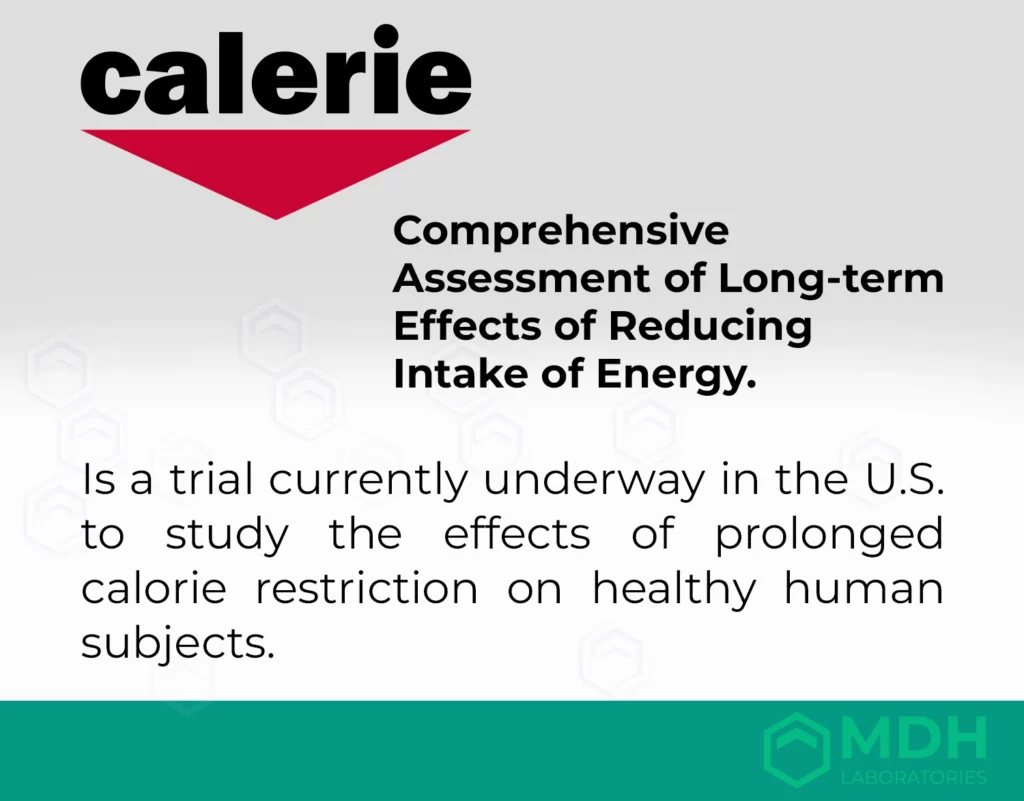Original Source
“Calorie restriction in humans builds strong muscle and stimulates healthy aging genes”
Recent study suggests a small reduction in daily calories provides benefits for our health.
Limiting calories may rejuvenate your muscles and activate biological pathways that are important for good health, according to researchers at the National Institutes of Health. Reducing calorie intake without depriving the body of essential vitamins and minerals, also known as calorie restriction, has long been known to slow the progression of age-related diseases in animal models. This new study, published in Aging Cell, suggests that the same biological mechanisms may also apply to humans.
“Reducing calorie intake by 12% is very small,” said Luigi Ferrucci, M.D., Ph.D., corresponding author and NIA Scientific Director. “This small change is achievable and may have a big impact on your health.”
Scientists next wanted to understand how calorie restriction produces the health benefits seen in limited previous research in humans. One study showed that people on calorie restriction lost an average of 20 pounds of weight and muscle mass over the first year and maintained their weight for the second year. However, despite losing muscle mass, the calorie restriction participants did not lose muscle strength. This indicates that calorie restriction improves the amount of force generated by each unit of muscle mass, a measure known as muscle specific force.
During the study, scientists collected thigh muscle biopsies from CALERIE participants at the start of the study and at one-year and two-year follow-ups.
To figure out which human genes were impacted during calorie restriction, the scientists isolated messenger RNA (mRNA), a molecule that contains the code for proteins, from muscle samples. The team determined the protein sequence of each mRNA and used the information to identify which genes originated specific mRNAs. Further analysis helped the scientists establish which genes during calorie restriction were upregulated, meaning the cells made more mRNA; and which were downregulated, meaning the cells produced less mRNA. The researchers confirmed calorie restriction affected the same gene pathways in humans as in mice and non-human primates. For example, a lower caloric intake upregulated genes responsible for energy generation and metabolism, and downregulated inflammatory genes leading to lower inflammation.

CALERIE is the first study to investigate prolonged calorie restriction in healthy humans. Study subjects are selected from people who are not obese (because calorie restriction on obese people is already known to lengthen life, but possibly for different reasons).
This study is being carried out at the Pennington Biomedical Research Center (Baton Rouge, Louisiana), the Jean Mayer USDA Human Nutrition Research Center on Aging at Tufts University (Boston, Massachusetts) and the Washington University School of Medicine (St. Louis, Missouri).[1] It is hoped that caloric restriction reduces the incidence of cardiovascular disease and cancer and leads to a longer life, as has been demonstrated previously in numerous animal studies.

